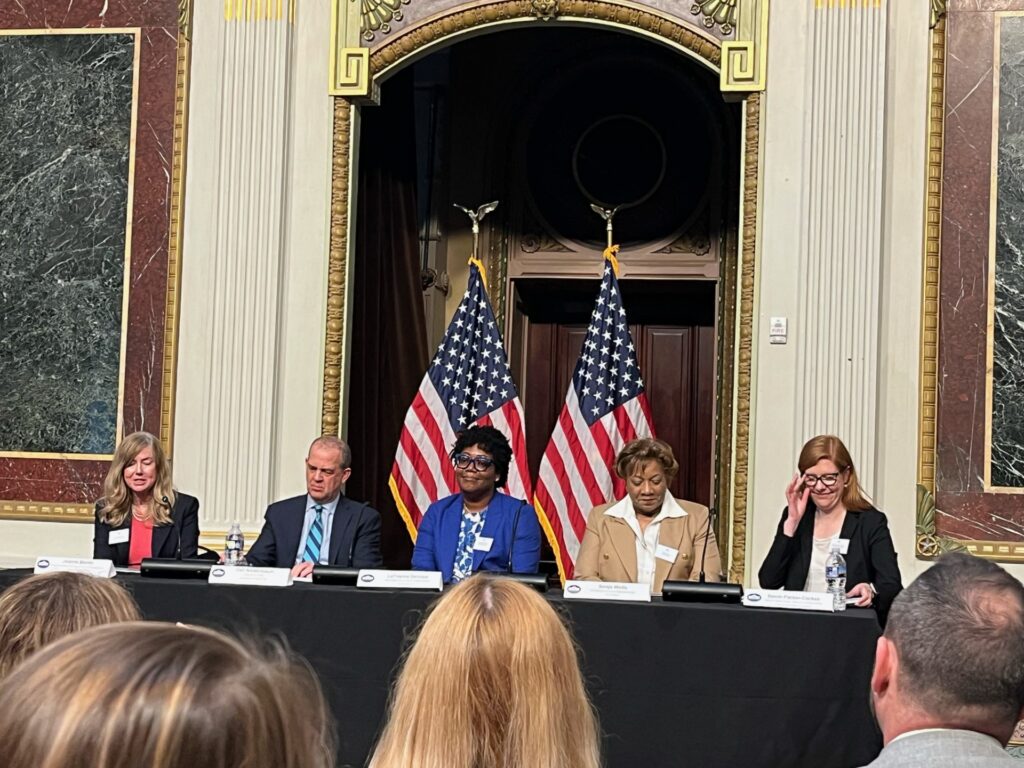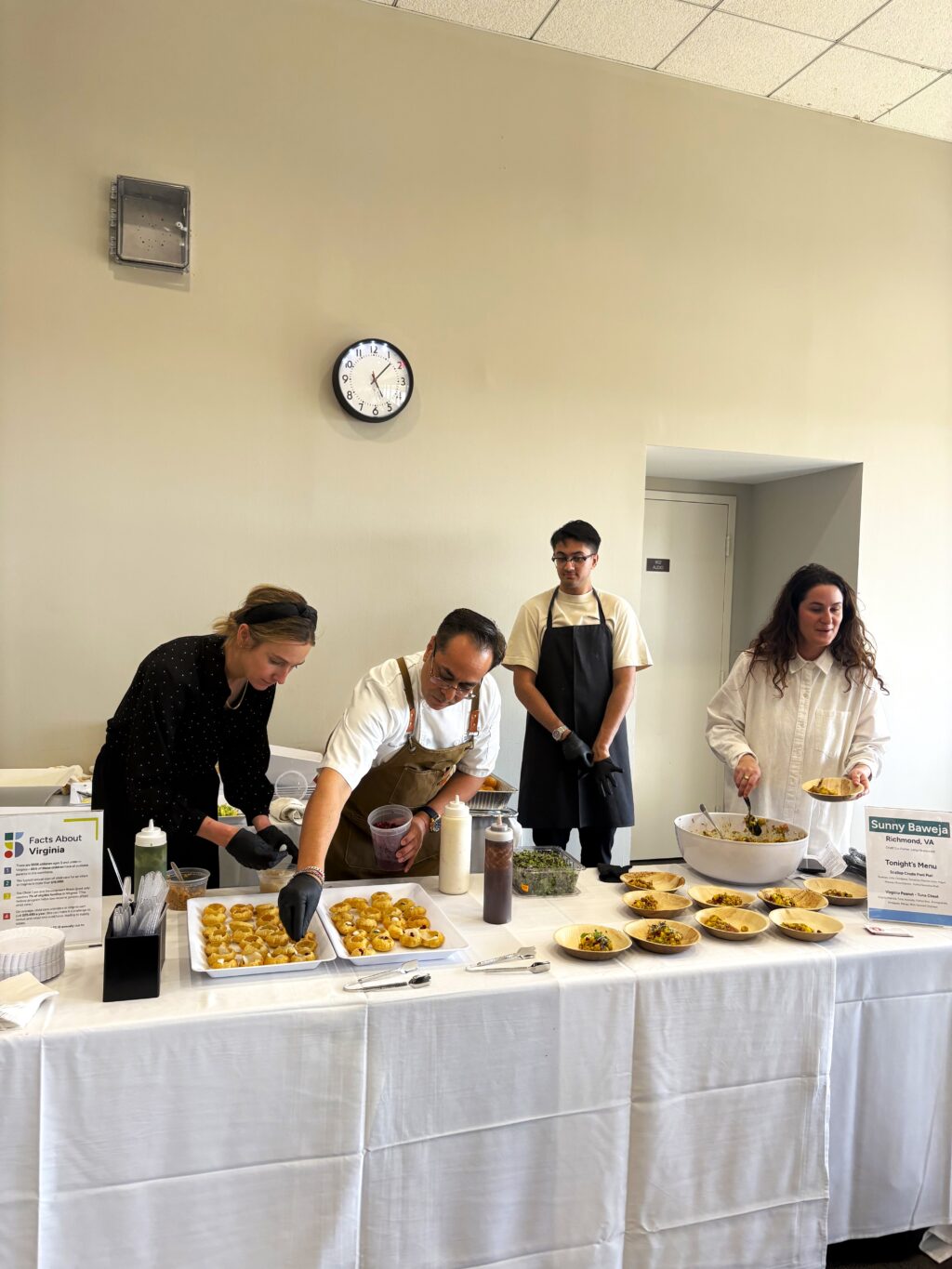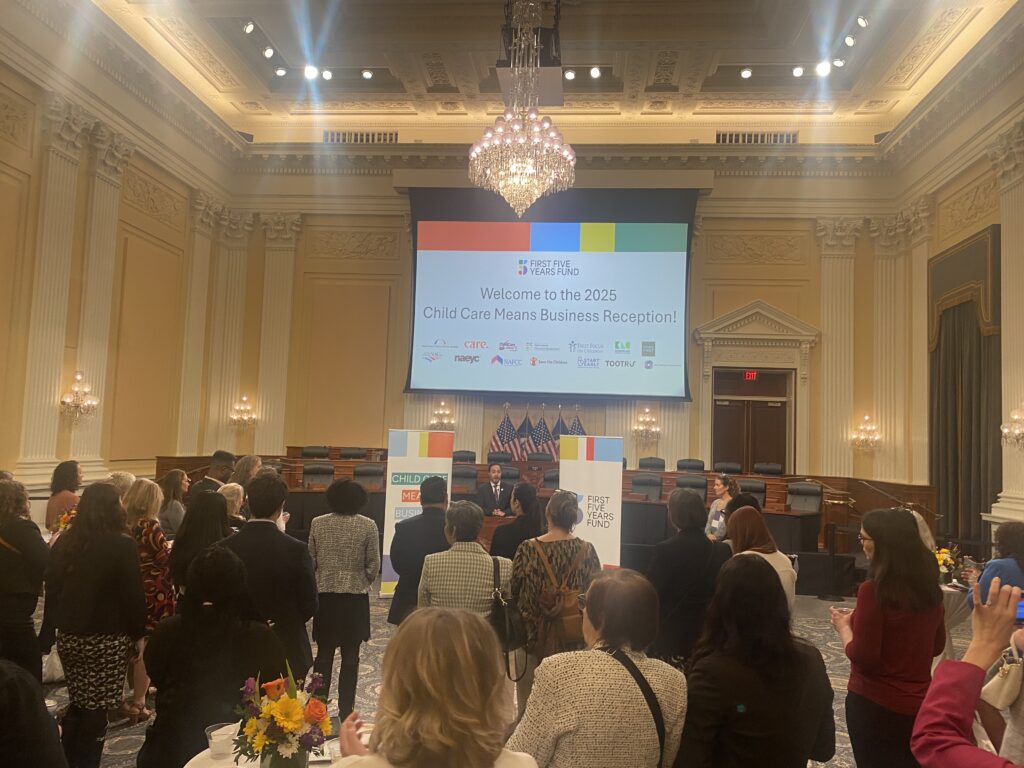U.S. Treasury Convening Highlights Financial Challenges and Opportunities for Child Care Providers

On Tuesday, April 30th the White House hosted a convening with the U.S. Department of the Treasury to discuss potential solutions to alleviate the operational and financial challenges of running a child care program. Much of the conversation focused on how Community Development Financial Institutions (CDFIs) can collaborate with child care providers to improve access for families. The agenda was packed with remarks from national leaders, inspiring accounts from child care providers, and insights from CDFIs.
CDFIs are financial intermediaries that specialize in providing financial services to people and places that lack access to financing. The Treasury’s CDFI Fund aims to expand economic opportunity to underserved communities by supporting growth and capacity building for CDFIs nationwide. Marcia Sigal, Deputy Director for Policy and Programs for the CDFI Fund, explained that the Biden-Harris administration has expanded funding for CDFIs and that child care is an increasing area of focus for these organizations.
The event included a powerful panel discussion where four child care providers shared their experiences leveraging various financing tools. These women had each made personal sacrifices to keep their businesses running, often resorting to using their own money. Securing better financing allowed them to pay their staff better wages, provide higher quality programming for their children, and keep doing the work they love. Jhoana Cuellar, who runs a bilingual program in Springfield, Virginia said, “if we have more assistance or more help financially, we can provide more environment for the kids, and we can give a better education to them. We really love our job, but we need help.”

Latonta Godboldt, who owns a family child care (FCC) program in Philadelphia, said she found working with a CDFI to be “really easy because they pave the way for providers to set themselves up for success.” She said she received access to coaches, mentors, and other resources that helped her modify her business plan, improve their finances, and leverage additional opportunities. She explained that banks often do not want to take the risk of financing FCC providers because their revenue is limited based on the small number of children they can care for.
Despite the challenges the providers had faced, they showed a remarkable commitment to providing high-quality care to children and families in their communities. Many child care providers come to the field with a passion for serving children, but might not have the specialized knowledge needed to run a successful small business, let alone navigate a real estate development project. CDFIs can provide that support and ensure that child care providers not only sustain, but grow their businesses.
The event also included a panel of representatives from four CDFIs engaging in the child care space in various ways. Bevin Parker-Cerkez explained how the Local Initiatives Support Corporation supports child care providers through technical assistance grants and loan financing. They are working to find “hyper-localized solutions to support growth, sustainability, and power.” CDFIs are unique in their commitment to meeting the unique needs of each business and offering technical assistance along with capital. Dan Nissenbaum, CEO of the Low Income Investment Fund, described it as being “Capital plus.” The technical assistance component can help providers access additional capital, like loans and grants, as well as navigate major projects and long-term goals.
As small business owners, child care providers need stable financing to be able to provide quality, stable services to children and families. This convening showcased the promising work that many CDFIs and child care providers are already engaged in and helped the field to better understand how to improve support for providers in the future.
Subscribe to FFYF First Look
Every morning, FFYF reports on the latest child care & early learning news from across the country. Subscribe and take 5 minutes to know what's happening in early childhood education.



